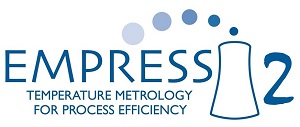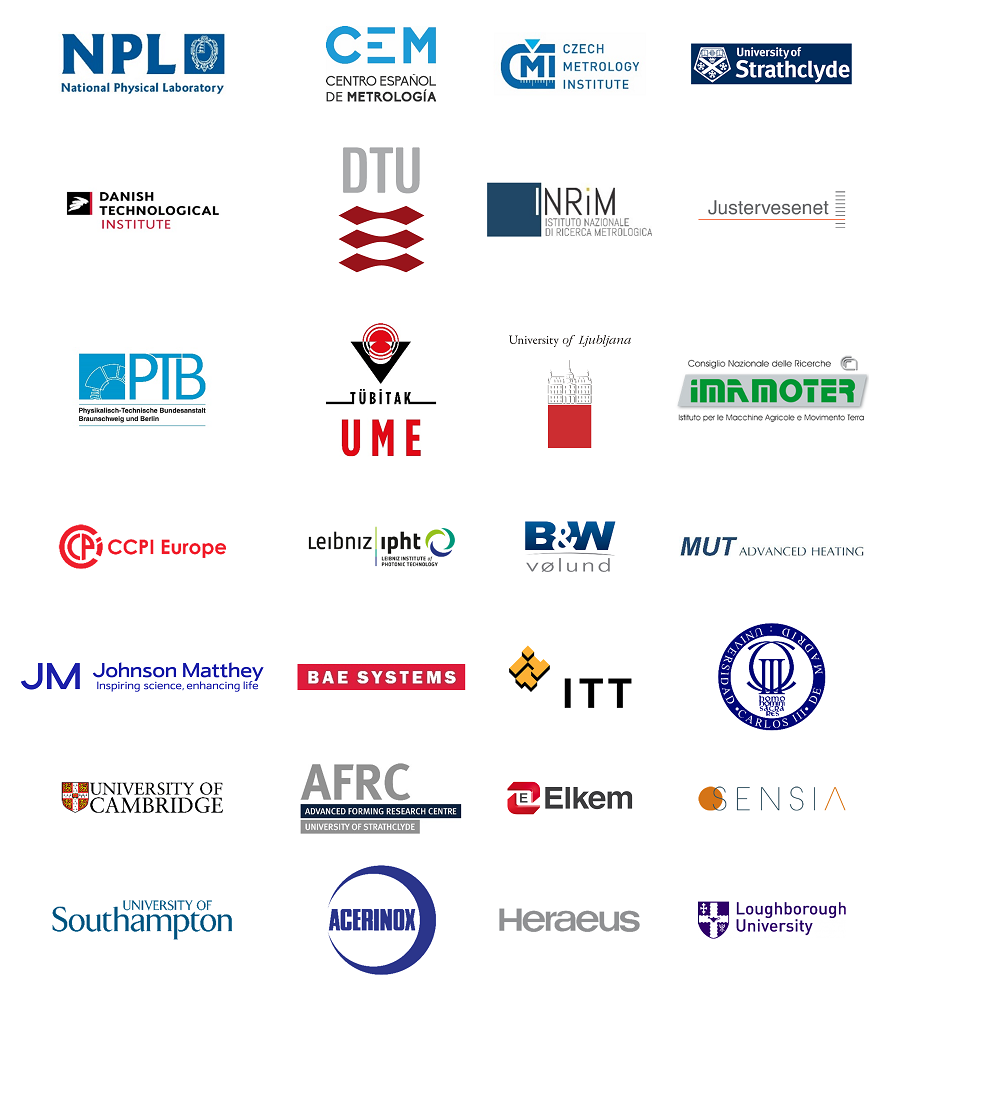

Following on from the success of the EMPRESS project, along with 28 other partner organisations, the University of Strathclyde and the AFRC are involved in the three-year follow on EMPRESS 2 project coordinated by the National Physical Laboratory (NPL) and funded by the European Association of National Metrology Institutes (EURAMET).
The overall aim of the project is to enhance the efficiency of high value manufacturing processes by improving temperature measurement and control capability. Enhanced efficiency includes improved energy efficiency (and hence reduced emissions); improved product consistency (and hence reduced waste); increased sensor stability, reliability and longevity (and hence reduced operator intervention).
This project addresses the four contemporary thermometry challenges where the need for improvement is greatest: namely surface contact temperature probes, thermocouples, combustion thermometry, and optical fibres.All activities in the project will be characterised by trials of the developments in-process at end users’ facilities and by the implementation of traceability to the International Temperature Scale of 1990 (ITS-90) in-process. Such traceability is critical to establishing low measurement uncertainty and reproducible process control.
Duration: May 2018 - April 2021
The specific objectives are to:
- Implement traceable surface temperature measurement in-process: by developing accurate methods for phosphor thermometry for temperatures up to 1000 °C. Such methods will also be combined with quantitative thermography in order to determine emissivity for temperature measurements over wide fields of view.
- Reduce uncertainty of temperature measurement in-process: through developing and implementing improved and traceable low-drift temperature sensors for enhanced process efficiency and improved temperature control. This will address the traceability of optimised Pt-Rh thermocouples, and a reduction in the uncertainty of new in-process temperature sensors such as the double-walled mineral-insulated, metal sheathed thermocouples through mitigating insulation resistance breakdown and drift effects.
- Implement in-situ traceable combustion thermometry: by validating an in-situ combustion reference standard (standard flame) of known temperature with an in-process target uncertainty of less than 0.5%. In addition, to use the combustion reference standard to evaluate the linkage between portable standard reference flames, improved process temperature control, and an enhancement in process efficiency.
- Introduce traceable fibre-optic thermometry: by developing reliable, accurate and validated methods for demonstrating the traceability of at least two different types of fibre-optic thermometry in hostile environments.
Partners
This follow on project now brings together 28 partners from the metrology community, high-value manufacturing industry, sensor manufacturing sector and academia.
Community
There is a stakeholder community associated with the EMPRESS 2 project comprising organisations involved in high value manufacturing who are interested in the project outputs. Members of the community receive regular updates on the project and are invited to workshops to discuss the project. Community members may also have opportunities to trial some of the in-process developments.
If you are interested in joining the stakeholder community, please get in touch.
In addition to this, the Thermocouples in Industry group on Linkedin, has been formed to provide an open-access space for engineers, scientists, manufacturers, suppliers and others to share their thoughts, advice and issues with the practical and professional use and manufacture of thermocouples.
Contact
Project coordinator: Dr Jonathan Pearce, National Physical Laboratory, UK
+44 (0)20 8943 6886
jonathan.pearce@npl.co.uk

